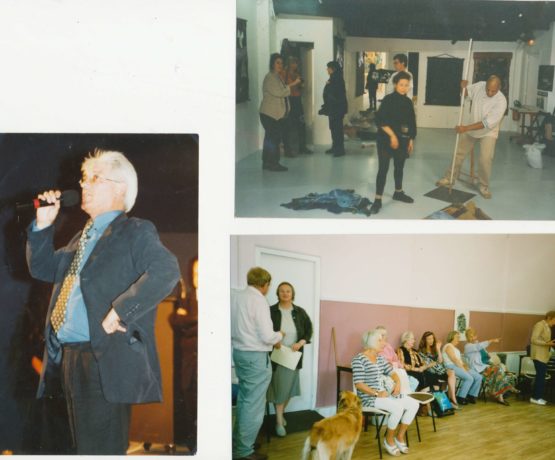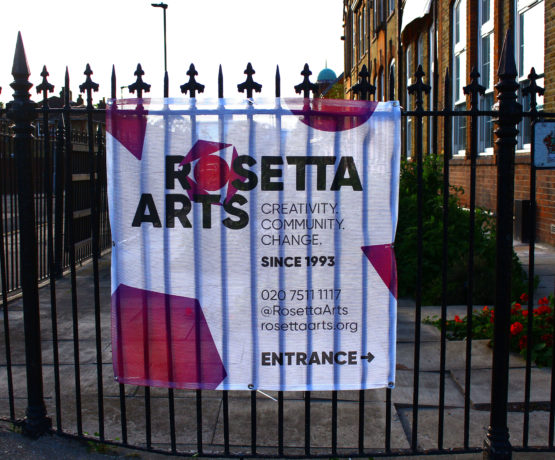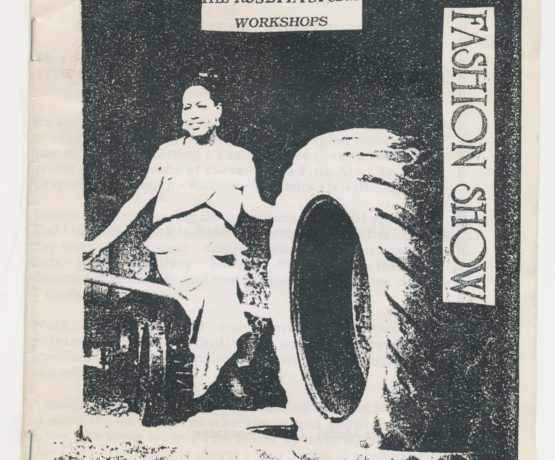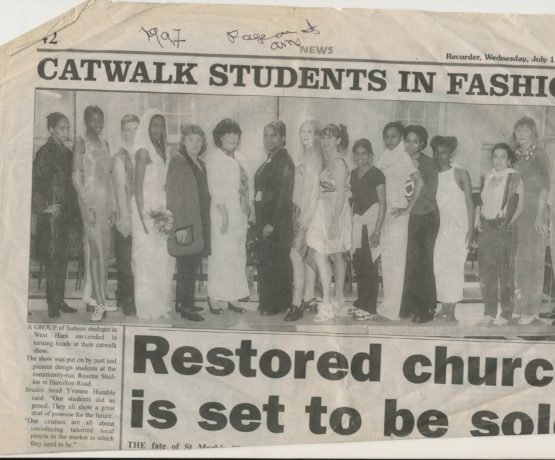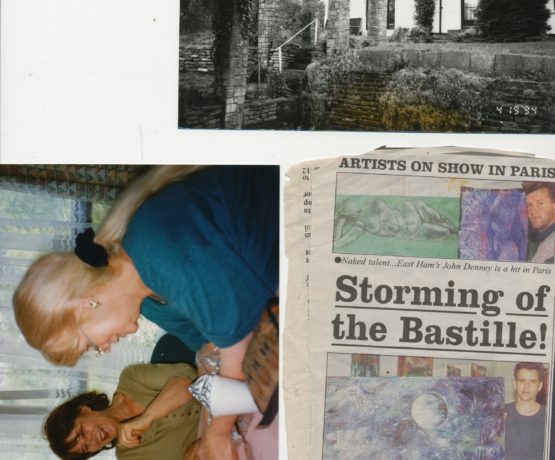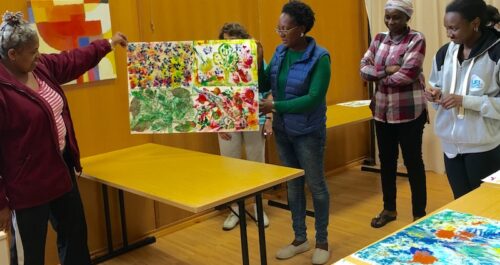Our Story
Founded in 1993 by radical educator and artist, Yvonne Humble, Rosetta Arts has grown and developed over the past 25 years. Responding to the needs and desires expressed by local communities, we are proud to be a dynamic and diverse organisation; delivering engaging courses, creative workshops and innovative participatory art experiences for people across east London.
At the heart of our programming there is something for all ages and stages of a person’s creative learning and development, reaching out to those who otherwise have little access to the transformative benefits of the arts. Working across gender, disability, age and income, we respond to poverty and inequality by acting as a catalyst for creative talent.
Timeline
1993
University lecturer and RCA graduate Yvonne Humble begins working with local people and artists in Newham running art programmes at a single classroom in Rosetta Primary School, Canning Town. Her approach was innovative and experimental, encouraging students to develop their own syllabus tailored to their personal interests and needs over a period of three years. The studio workshops provided space for creative exploration whilst developing entrepreneurial skills through professional development workshops. Sessions were also held at Debden House, surrounded by Epping Forest.
1995
The success of the art programmes coupled with Yvonne’s frustration at the state of art education brought her to join forces with Steve Cameron, Head of Newham Adult Learning Service. Steve helped Yvonne secure studio space and arranged for what became known as Rosetta Studio Workshops, replacing the Newham Arts Education Centre at Hamilton Rd, E15. Yvonne bought in acclaimed artists Ray Silverman and Pam and Bob Brockhurst. Yvonne has described the atmosphere of those early days as a welcoming and inclusive environment:
“Students also looked after one another, discussing their work and their programmes. No one copied, they were all individuals. This is how I wanted them to become. They were told by me they were all the same status. We were all striving but no one was beneath anyone else.”
1995
The studios are awarded a grant from Day Ellen Youell foundation. A learner who benefited from Rosetta through workshops at Debden House recalls,
“With one thousand pounds we bought a new machine for dressmaking, a dressmaking dummy and a few other useful items. It was a godsend in those first days. “
Many students progressed on from Rosetta to higher education, whilst others secured work facilitating art workshops – the Centre was thriving.
1996- 2007
The Centre was able to showcase students work, organising two exhibitions a year at St Martin’s In The Field Crypt, the Quaker Gallery and Gallery 42 opposite the British Museum, also installing two international exhibitions in Paris.
The Centre began to run accredited classes with City & Guilds for whom Yvonne developed their first ever painting syllabus.
Life at the Centre was always relaxed, with lunchtime yoga classes and lecturers and students sharing home cooked food on Fridays. Students had begun to take their work to markets and stall and were developing their skills based on their own aims. One of the Centre’s early students was Alexander McQueen. Yvonne remembers when he first came to her:
“Lee, as he wanted to be called, came to me as an evening student when he was learning tailoring in Saville Row. His first words were not just to be an everyday student, but to tell me he wanted to be a great designer of clothes.”
Alexander was one of many that came to the Centre with ambitions, and were supported, encouraged and trained to work towards them. This ethos of nurturing creative talent has always stayed central to Rosetta.
2007
Yvonne retires and approaches Sanaz Amidi, Trisha McCauley and Steve Marriott, having worked with them in the past, keen to hand Rosetta to people who share the same values and ethos for art education.
The Centre was renamed, Rosetta Art Centre and over the next five years expanded its provision with a broader range of accredited courses, a series of new pilot projects to include sessions specifically for children, young people, older people and adults with learning difficulties and/or disabilities.
“When we took over Rosetta, we knew its charm and value was in its ethos in breaking down barriers to nurture individual creative talent and that sense of community was only possible through building relationships. We wanted more people and groups to benefit and set about widening the creative offer.” – Sanaz Amidi
2009
Rosetta Art Centre registers as a social enterprise – one of the early applicants of the Community Interest Company model.
2011
Rosetta embarks on a significant international project, Imagining Identity, working with young native and migrant people in London and young women in a rehabilitation centre in Tehran.
2014
Sanaz works with IESE Business school to develop an Advisory Board to support Rosetta’s growth and sustainability.
2015
March 2015 Rosetta announces the Advisory Board with David Forrester as chairperson.
2017
Rosetta Art Centre applies for the first time to the Arts Council England National Portfolio.
2018
In January 2018 Rosetta Art Centre is invited to join as a National Portfolio Organisation of the Arts Council England, and shortly after (March 2018) successfully applies for charity status as a Charitable Incorporated Organisation (CIO).
In September they announce their new name Rosetta Arts and a fresh new identity to celebrate their 25th birthday celebrations.
2019
Rosetta produces its first annual CIO report.
2022
Just after announcing it’s 30th anniversary programming and despite Arts Council England receiving a record-breaking number of applications, Rosetta Arts was successful in the 2023-26 NPO round and was one of the only visual arts organisations in London to receive an uplift.
